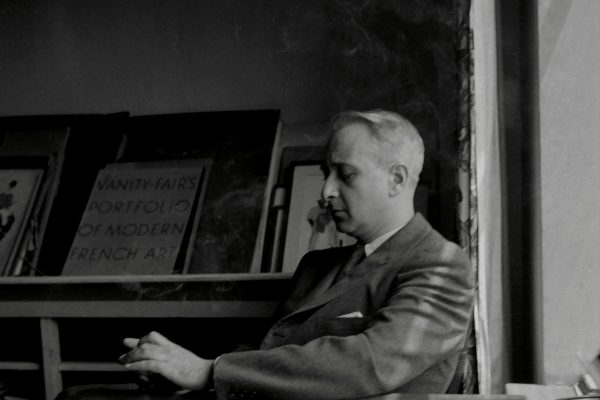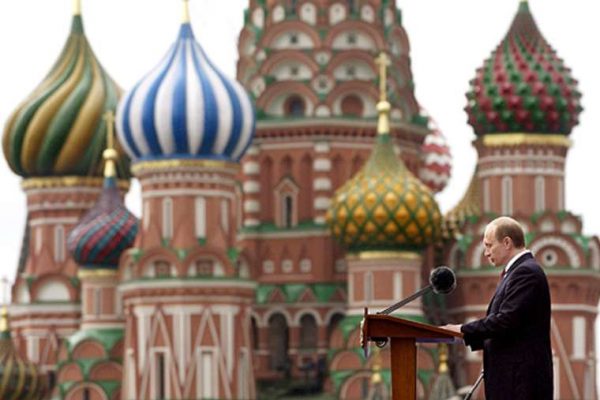The Crafty Reader
Robert Scholes
Yale University Press, $24.95 (cloth)
Robert Scholes
Yale University Press, $24.95 (cloth)
Arguing that New Criticism was "bad for poets and poetry and really terrible for students and teachers of poetry," Robert Scholes begins his new book of criticism with a call for a "craft of reading" which stresses the relationship between literature and life rather than one which enshrines idealized works of textual and generic purity. Although Scholes does quite a bit of close-reading of modernist and contemporary texts, his primary concern is pedagogical; any student can become an empowered and skilled reader of both canonical and genre-bending texts. The book's theoretical strength lies in Scholes's ability to combine New Critical and structuralist techniques of "close-reading" with the more expansive and inclusive impulses of cultural studies, particularly in his discussion of "low" or "popular" (and highly gendered) forms: private-eye novels; "monstrous personal chronicles" written between WWI and WWII; works of science fiction and science fantasy; Norman Rockwell's paintings; even the Harry Potter craze. Scholes's privileging of authorship as a stable category and his recourse to a vague notion of "human concerns" does limit the scope of his textual and rhetorical analysis. However, Scholes's self-reflexivity and thorough commitment to reading as a democratic craft rather than a "high art" are a palpable and unifying force here. The book's final chapter on the problem of "fundamental literalism" persuasively demonstrates the power of Scholes's argument that reading is a teachable craft—one that is both complex and ethical in nature.
—Jocelyn Emerson
A Moral Temper: The Letters of Dwight Macdonald
Edited by Michael Wreszin
Ivan R. Dee, $35 (cloth)
Edited by Michael Wreszin
Ivan R. Dee, $35 (cloth)
A Moral Temper is a history of the mind of Dwight Macdonald, a proud "rebel and bad boy" who wrote for Fortune, Partisan Review, The New Yorker, Esquire, and other magazines in the mid-twentieth century. The letters show a serious man grappling with tragic ideas. In Politics, the antiwar magazine he founded, Macdonald opposed the Second World War from a "revolutionary socialist viewpoint." During the 1950s he traded left-wing politics for cultural criticism, and became a prominent defender of a "highbrow" sensibility. Macdonald never thought of himself as a liberal, nor as a man of any majority persuasion. For such dedication to free intelligence he deserves our highest regard.
From a writer so devoted to moral independence and yet so chained to ill-fated ideas, one may hope for lasting insights about the practice of dissent in America. But the pitiless character of his criticism diminishes these letters in this respect, even as it enlarges them in other ways. "Writers should never be given the tiniest break if we want decent writing," Macdonald insisted. Maybe his recurrent "writer's block" indicates that a mind over-exerted in judgment and indignation eventually wearies, and opposes even itself.
—John H. Summers
The Tragedy of Great Power Politics
John J. Mearsheimer
W. W. Norton & Company, $27.95 (cloth)
John J. Mearsheimer
W. W. Norton & Company, $27.95 (cloth)
The 1990s were a difficult decade for the realpolitik school of international relations; the collapse of the Soviet Union ended the power struggle that had suffocated the international system for nearly half a century, and idealists were quick to claim the new era for themselves. Resisting this optimistic incursion into the study of international political affairs, University of Chicago professor John J. Mearsheimer energetically argues that international relations have always been characterized by "tragedy," and that the end of the Cold War did not mean otherwise. One might think that Mearsheimer's book promises a timely addition to the international relations canon: it was released one month after the atrocities of September 11 put an end to the post-Cold War era. But Mearsheimer's exclusive focus on relations between "great powers" means that his book suffers from an obvious lack when it comes to understanding the September tragedy and the war that has followed. Nor is Mearsheimer's theory of "offensive realism" as novel as it sounds; though he distinguishes his approach from Kenneth Waltz's neorealist emphasis on defense, Mearsheimer's view is, at bottom, a variation on the old realist theme, a mechanical explanation of every war in terms of the anarchical nature of the international system and the balance of military power within it.
—Jennifer Szalai
Two Faces of Liberalism
John Gray
The New Press, $25 (cloth)
John Gray
The New Press, $25 (cloth)
In this characteristically trenchant book, John Gray argues that liberalism embodies two distinct philosophies. One supposes that we can achieve a rational consensus on a single best 'way of life.' The other demands toleration of different ways of life. The first philosophy is mistaken because, as Isaiah Berlin argued, there are plural, incommensurable human goods that cannot be combined within a single way of life. Immigration and cultural change have increased the salience of this value-pluralism in liberal societies. Gray concludes we should therefore replace the misguided search for a universally 'ideal regime' with a more pragmatic, 'modus vivendi' philosophy aimed at keeping peace between different ways of life, liberal and non-liberal, embodying different human goods.
But a liberal constitutionalist regime, characterized by expansive freedoms of conscience, expression, and association, provides a framework for a wide pluralism of personal and associational 'ways of life.' (Throughout his discussion, Gray shifts between such different uses of the phrase.) Why isn't such liberalism itself an appropriate ideal? To defend the priority of the freedoms distinctive to the liberal constitutional order, we certainly have to affirm the priority of certain human interests. But this affirmation is entirely consistent with value pluralism. Indeed Gray acknowledges some universal bads that all respect-worthy 'ways of life' must avoid, universal interests they must respect. Do these not include the expressive and deliberative interests people have in formulating their own conceptions of the good life? If so, then in principle a liberal constitutional order would seem the most appropriate framework for pluralism, in view of the unique protection it provides for these interests. Perhaps in the context of highly disordered societies, this is not immediately feasible, and second- or third-bests must be considered. But this pragmatic consideration should not be confused with a principled rejection of liberalism as first-best.
—Stuart White
What's Love Got to Do with It? A Critical Look at American Charity
David Wagner
The New Press, $18.95 (paper)
David Wagner
The New Press, $18.95 (paper)
It is better to give than to receive—especially, David Wagner tells us, in the United States. Americans applaud themselves for generosity, for the national willingness to support private charity, but in reality that charity amounts to little. At least, it amounts to little for the people who need help. Private charities today tend to support upper-middle class causes—the YMCA, for instance, used to provide low-cost residences but now builds elaborate, fee-for-use fitness centers—and spend money on developing cause "awareness" rather than, say, feeding or housing people. Wagner points out what should be obvious, but somehow isn't: that behind all the TV-anchor talk about American bigheartedness, behind all the telethons and bake-a-thons, lies a system of rampant poverty and inequality, propped by a stingy public welfare system. Still, he notes that historically speaking, that same welfare system has been the best hope of the least well-off and suggests that political struggle remains the most likely agent of social change. The virtue rhetoric of independent charities, on the other hand, has often attached itself to a hidden streak of oppression, in which the poor are treated as permanently second-class souls rather than as equal citizens deserving equal dignity. Wagner doesn't doubt that there is love in the United States, and that love could be leveraged toward a more comprehensive system of giving. But Americans will first have to move past pretty words and petty works, and make the kind of serious, difficult, and public commitments that real love entails.
—Susan McWilliams
Memoirs: A Twentieth-Century Journey in Science and Politics
Edward Teller with Judith Shoolery
Perseus, $35 (cloth)
Edward Teller with Judith Shoolery
Perseus, $35 (cloth)
At ninety-three, Edward Teller remains unrepentant for his role in ushering in the nuclear age. The hydrogen bomb's greatest champion, Teller was also an early advocate for nuclear devices in transportation and civil engineering projects. His critics thought him mad; even his close friends questioned his nuclear obsessions. But unlike the Dr. Strangelove character he partially inspired, Teller insisted that the multilateral possession of nuclear weapons would ensure global peace. "Looking at weapons in general," he writes, "I had not thought of the hydrogen bomb as designed for battlefield use." The memoirs attempt to humanize Teller's hawkish legacy through his considerable charm. Teller expresses remorse at the American decision to bomb Hiroshima and Nagasaki, claiming that he would have preferred a terrifying (but relatively harmless) demonstration high in the Japanese skies. Similar regrets forced Robert Oppenheimer, Leo Szilard, and Enrico Fermi to condemn the development of the hydrogen bomb; not so for Teller. Then, as now, Teller's unshakable belief in the fundamental goodness of nuclear devices isolated him from the postwar scientific community and almost certainly led to his damning testimony against Oppenheimer in 1954. This, Teller chalks up to political naivete, but the historical evidence suggests otherwise. Oppenheimer lost his security clearance, and Teller lost his friends. His version of these and other events suggest that Teller would willingly exchange his increased political influence for the renewed embrace of the scientific community.
—Audra J. Wolfe







